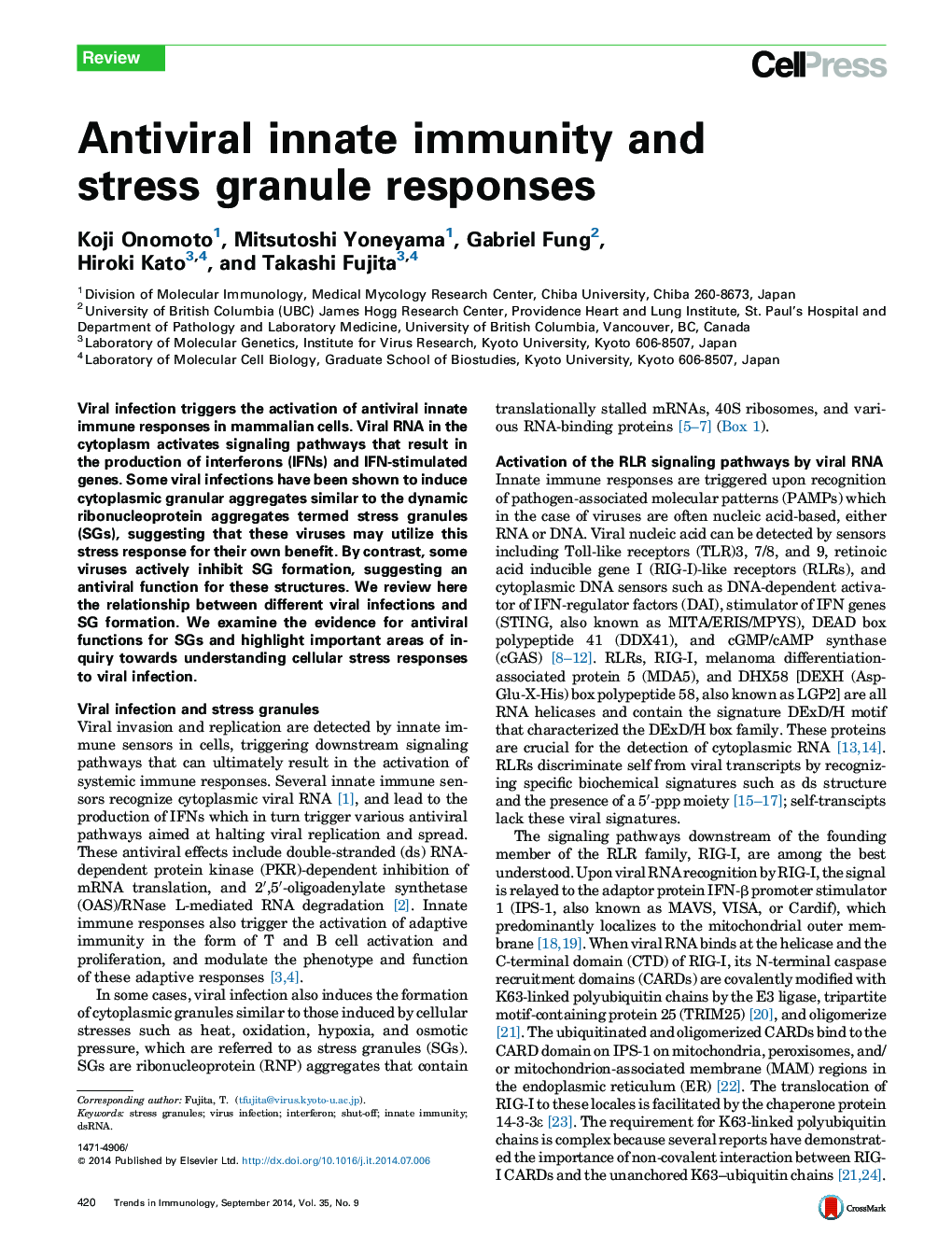| Article ID | Journal | Published Year | Pages | File Type |
|---|---|---|---|---|
| 4359910 | Trends in Immunology | 2014 | 9 Pages |
•Stress granules (SGs) are induced upon infection with some DNA and RNA viruses.•Many viruses block the induction of SG, although some appear to benefit from SG formation.•Some innate immune sensors associate with SG, but how this affects function is unclear.•The evidence suggests that SG formation is an important aspect of the antiviral response.
Viral infection triggers the activation of antiviral innate immune responses in mammalian cells. Viral RNA in the cytoplasm activates signaling pathways that result in the production of interferons (IFNs) and IFN-stimulated genes. Some viral infections have been shown to induce cytoplasmic granular aggregates similar to the dynamic ribonucleoprotein aggregates termed stress granules (SGs), suggesting that these viruses may utilize this stress response for their own benefit. By contrast, some viruses actively inhibit SG formation, suggesting an antiviral function for these structures. We review here the relationship between different viral infections and SG formation. We examine the evidence for antiviral functions for SGs and highlight important areas of inquiry towards understanding cellular stress responses to viral infection.
